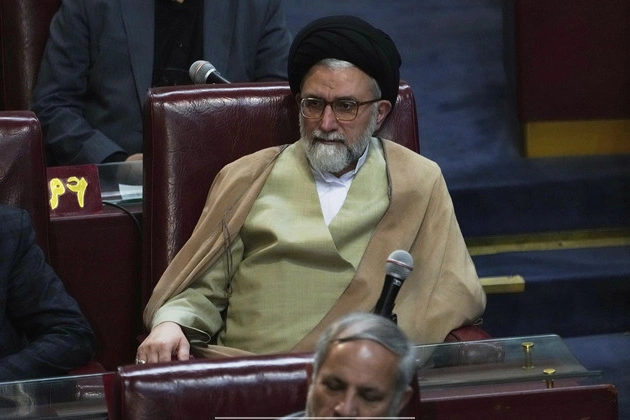
Iran’s intelligence minister, Esmail Khatib, made a bold claim without evidence, stating that Tehran had seized crucial information about Israel’s nuclear program. This announcement comes at a critical juncture as Iran faces potential diplomatic pressure over its own nuclear activities.
Unsubstantiated Claims and Potential Consequences
Over the weekend, Iranian state television announced, also without proof, that Iranian intelligence officials had confiscated documents related to Israel’s nuclear capabilities. Notably, Israel has not acknowledged any Iranian operation targeting its nuclear program. However, amidst the Israel-Hamas conflict, there have been reports of arrests of Israelis accused of spying for Tehran.
Meanwhile, Iran is bracing for criticism from the International Atomic Energy Agency’s Board of Governors regarding its nuclear program. Despite five rounds of negotiations with the United States, Iran seems poised to reject a proposal, escalating the longstanding crisis.
During a press briefing, Khatib revealed that the Intelligence Ministry had obtained a significant volume of strategic, operational, and scientific intelligence on the Zionist regime. He claimed that thousands of pages of documents, including information on the U.S. and Europe, were acquired through infiltration and source access.
While the methods used were not disclosed, Khatib, a sanctioned Shiite cleric, has a history of involvement in cyber espionage and ransomware attacks to further Iran’s political objectives.
Strategic Messaging or Response to Israeli Action?
This latest claim by Iran may be an attempt to showcase its ability to counter Israeli operations. In 2018, Israel allegedly extracted documents related to Iran’s nuclear program, prompting tensions. Subsequently, the U.S. withdrew from the 2015 nuclear deal with Iran, leading to increased scrutiny of Iran’s nuclear activities.
Western nations are gearing up to present a proposal at the IAEA’s Board of Governors meeting, potentially declaring Iran noncompliant with nuclear regulations. This move could trigger U.N. Security Council involvement, marking a significant escalation in the dispute.
With Iran enriching uranium up to 60% purity, concerns about its nuclear ambitions are mounting. The absence of a diplomatic resolution could precipitate economic turmoil in Iran and heighten the risk of military intervention by Israel or the U.S.
Implications for Regional Stability
The escalating tensions surrounding Iran’s nuclear program underscore the need for diplomatic solutions to avert a crisis. Failure to reach an agreement with the U.S. could provoke further instability in the region, with potential repercussions on global security.
As the situation unfolds, monitoring Iran’s compliance with international nuclear regulations remains paramount. The international community faces a critical juncture in addressing Iran’s nuclear ambitions and safeguarding regional stability.











